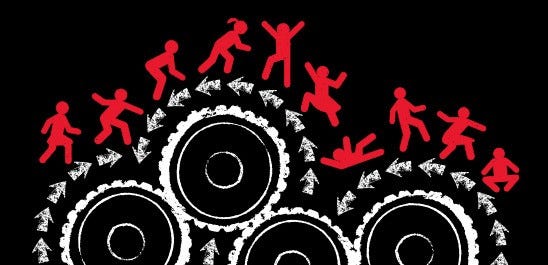A Word about the Precariat, a Group I Had Not Defined as Me, Although I’m Quite Obviously a Member
Some things creep up as you get old, and being among the precariat was a pleasure I would just as well have avoided.
Wikipedia informs me that in sociology and economics, the precariat is a neologism that describes a social class existing without predictability or security, affecting their material or psychological welfare. The term is a combination of precarious with proletariat.
The Oxford Dictionary defines it as: “modern day ‘gig economy’ workers, mainly freelancers without long term or permanent contracts and people on short-term and zero hours contacts are all considered to be precariat’s.
“The precariat represents the closure of the cycle from industry replacing the artisan with manufacturing and office centers to the creation of artisan freelances that work into what used to be organizations. Drivers, writers, graphic designers, IT professionals and even chefs and personal assistants among literally thousands of other professions now operate outside the sphere of the organization while directly influencing its trajectory. For the employer this means that there are cuts in costs as healthcare, sick and maternity pay, and other employee benefits don’t have to be met while getting a similar service out of the loose networks that it exploits to achieve the same aims it once had as a brick and mortar office block.”
Who knew?
I understood that Uber drivers, delivery people and those we choose to call contract workers are at risk because their ‘contact’ stipulates no defined hours, no minimum salary, health care, overtime, profit sharing, or any of the normal benefits associated with having a job. And, best of all, they are required to be on-call twenty-four hours a day, seven days a week. There’s simply no better definition for precarious.
But me? I’m a member?
Well, let’s see. I never really thought it through.
True enough, my income is mostly dependent upon Social Security, and despite its name, the government keeps threatening to take it away. Nothing too secure in that. I make some extra change by writing and editing, but what didn’t fall apart during Covid has pretty much fallen victim to artificial intelligence, so the universities in Europe don’t call very often. And, two months into my nineties, holding an ordinary job is more dream than reality.
Although I do write
Closing in on two thousand essays, three novels, two non-fiction books and three volumes of poetry. Even so, the MacArthur Foundation has yet to call.
So, here I am—unmasked as a precariat, and not even aware of the honor.

